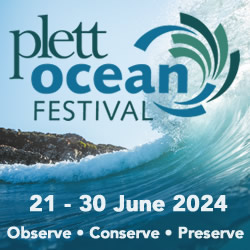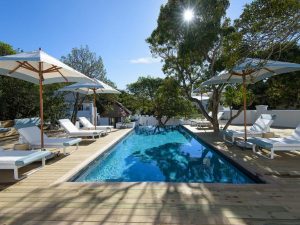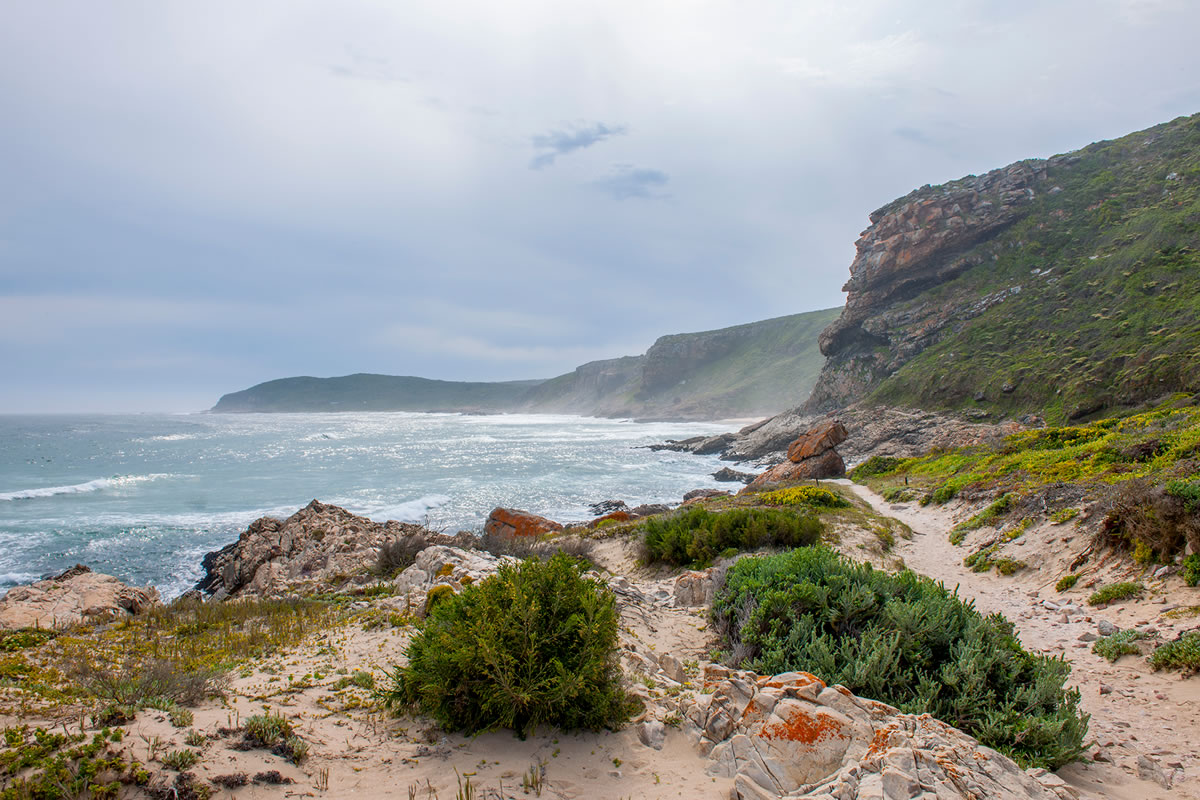
Plett Tourism declares “Hands Off our Coast” – No to seismic testing
On 23 November 2023, Plett and other coastal communities along the south-eastern Cape of South Africa were rocked by the controversial approval by the Department of Mineral Resources and Energy (DMRE) to UK-based company CGG to conduct a seismic survey in the Algoa/Outeniqua Basin (roughly between Plettenberg Bay and Gqeberha). The public was given just 20 days to appeal, with submissions due on 13 December, just before the start of the summer high season.
According to an article in The Conversation, marine scientists Ryan Day, Jayson Semmens and Robert McCauley explain: “During a survey, sound signals are generated every four to ten seconds, 24 hours a day, seven days a week. Seismic surveys can last for weeks or months, and cover thousands of square kilometres of ocean.” The article is titled: titled “Whales stop singing and rock lobsters lose their balance: how seismic surveys can harm marine life.” With the growth of sustainable energy, this application is as unnecessary as it is unconscionable.
Plett is bordered on both sides by the Robberg Marine Protected Area (MPA) and Africa’s oldest MPA, Tsitsikamma, placing them, and other MPAs in the direct line of fire from the fallout of the seismic testing. The approval for CGG is made all the more shocking in light of 2019’s recognition of 20 new offshore Marine Protected Areas by the South African Government, a move that increased the oceans protected around our country’s mainland from 0.4% to 5%. Along the Algoa/Outeniqua Basin there are seven MPAs that could be directly affected by seismic testing, including two offshore MPAs: Robberg, Tsitsikamma, South West Indian Seamounts, Agulhas Front, Port Elizabeth Corals, Sardinia Bay and Addo Elephant National Park. These MPAs protect fragile coral habitats, marine life and endangered bird breeding grounds, vital nurseries, and important routes for local and migratory marine mammals.
In her third and most recent letter of appeal to the DMRE, Plett Tourism CEO, Patty Butterworth, highlighted the urgency of the appeal – as testing is set to begin in January 2024 – and the dire consequences for the health and biodiversity of the coastal region, tourism and livelihoods if the testing were to go ahead.
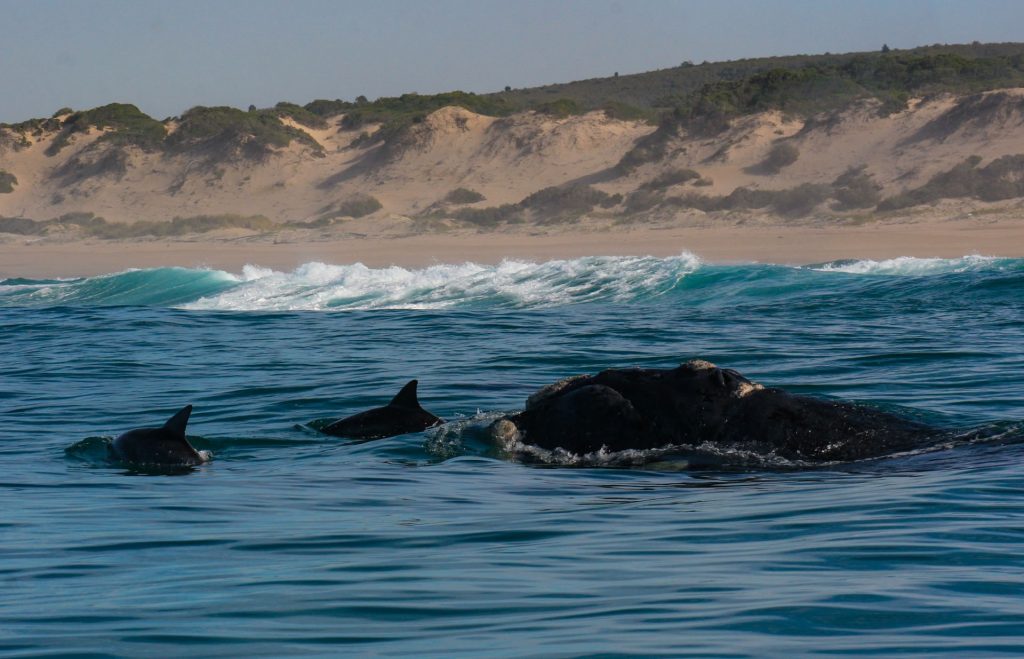
“Firstly,” says Butterworth, “Bitou has many community members who rely on fishing as their main source of income and as their main source of food. These fishermen were not previously engaged with, nor were they made aware of the meeting – this study directly affects their livelihood, and they need to be engaged with and made aware of the potential impact on their livelihood.”
Her letter goes on to outline Plett’s unique tourism selling points of ocean and marine life and the vital economic role that tourism plays for the region. “Our branding and marketing campaign speak to sport and nature with a major focus being on our coastline and oceans and as a result the ecology of the area is uppermost in the mind of our tourists and exploration and exploitation of our natural resources such as that proposed is likely to create a negative perception in the minds of potential tourists thus adversely affecting tourism arrivals.”
The southern Cape coastline boasts some of the most vibrant soft corals in the world. Its position is where the warm Indian Ocean and cool Atlantic Ocean merge. These habitats are vital to our ocean’s health and need to be protected. Plettenberg Bay is home to endangered and endemic species of mammals and fish, and is on the migratory route of both the Southern right and humpback whale populations. The bay has also been declared as an international Blue Spot by Mission Blue’s Dr Syliva Earle, has six Blue Flag beaches, the Nature’s Valley area recently received the Green Coast award, and the town is often recognised as among Africa’s leading beach destinations. The importance of Plett’s beaches, ocean and marine life cannot be overstated.
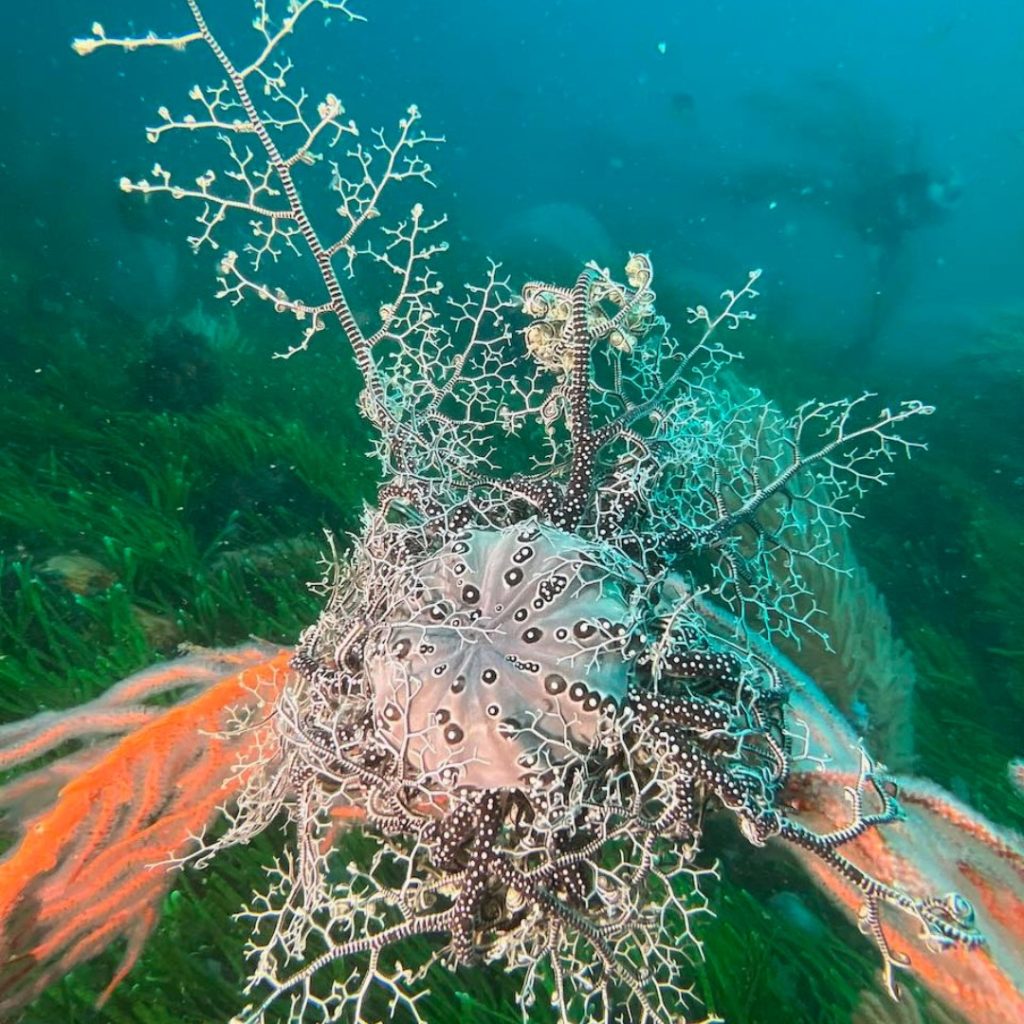
Ironically, Plett was recently declared a prestigious Whale Heritage Site – one of only ten sites globally – by the World Cetacean Alliance earlier in 2023. These sites formally recognise and accredit destinations around the world that support and demonstrate the importance of cetaceans and their ocean habitats. These sites empower and defend the right of local communities to care for and protect whales, dolphins, and porpoises through a collaborative management partnership. Chairman of the Whale Heritage Site steering committee, Rob Smith said in his appeal: “There are too many gaps in marine science knowledge for such a high-risk application and the precautionary principle must apply. Further research is required for a comprehensive understanding of marine ecosystems and the cumulative impacts of proposed activities over time.”
Plett conservationists are very alarmed, believing that South Africa is an easy target, “The timing is strategic – we believe – to confuse people about what is being targeted and the areas that are being targeted,” explains Julie Carlisle of the Plett Environmental Forum. “The timing, also, in terms of enabling people to comment on the applications, is very strategic, we believe. It’s our busy season, it’s our crazy season in coastal communities and suddenly we have to find the time and the means to volunteer our services to write appeals, to understand very technical and detailed scientific documents.” Watch the full video from videographer, Daron Chatz.
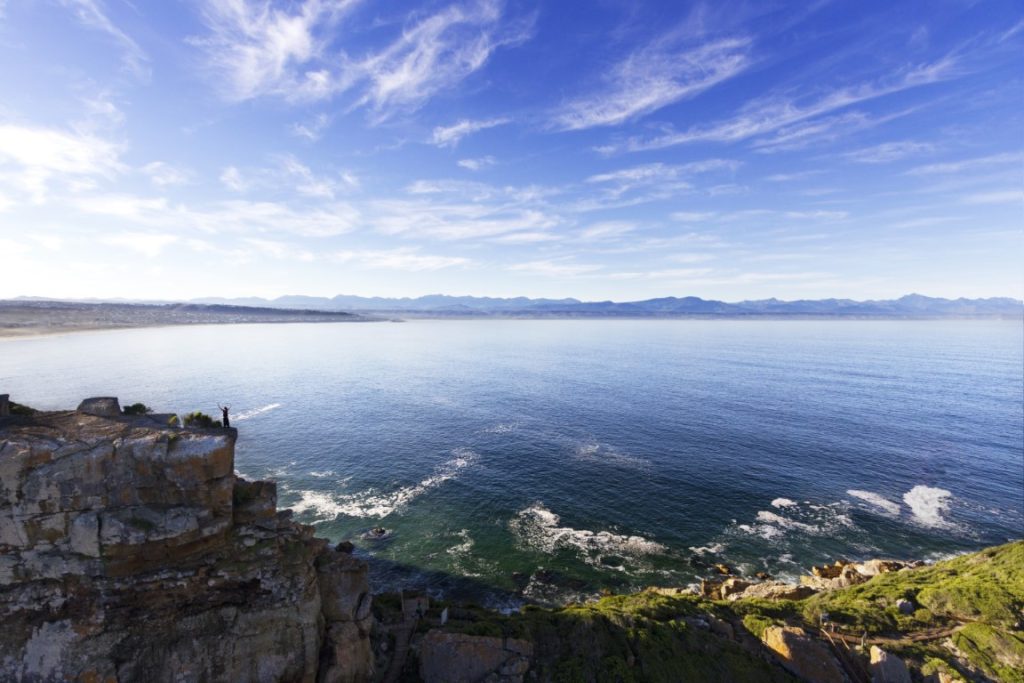
According to the SA Government website, South Africa, “as a party to the United Nations Convention on Biological Diversity (UNCBD), is a signatory to the Kunmig-Montreal Global Biodiversity Framework (GBF) which consists of four goals and 23 action targets. Target 3 calls for 30 percent of the world’s terrestrial and coastal and marine areas to be in effective protection and management by 2030.” In South Africa, the GBF will be implemented within the four goals of the White Paper on Conservation and Sustainable Use of South Africa’s Biodiversity, namely conservation, sustainable use, fair and equitable sharing of benefits as well as transformation.
This is a national emergency: a threat to our health, a threat to our natural resources and a threat to our livelihoods. Shell Oil recently lost a landmark case in the Eastern Cape in a similar situation. And, key to that loss was the immense community response and public outcry. According to the National Environmental Management Act (NEMA), an environmental and social impact assessment is required to support sustainable development, to ensure that activities pose minimal risk to life, livelihoods and the environment.
Now, Plettenberg Bay, Gqeberha and the communities between them find themselves in a position where we have to speak out to defend our constitutional rights and to protect our natural resources. We want to tell CCG: Hands off our coast. Plett Tourism supports sustainable development: development and growth that is inline with the town and its values, including preserving our natural environment. What can you do? Although appeals have closed, please sign the Change.org petition. Keep an eye on community pages in your area or join the Plett Environmental Forum for any upcoming events.



